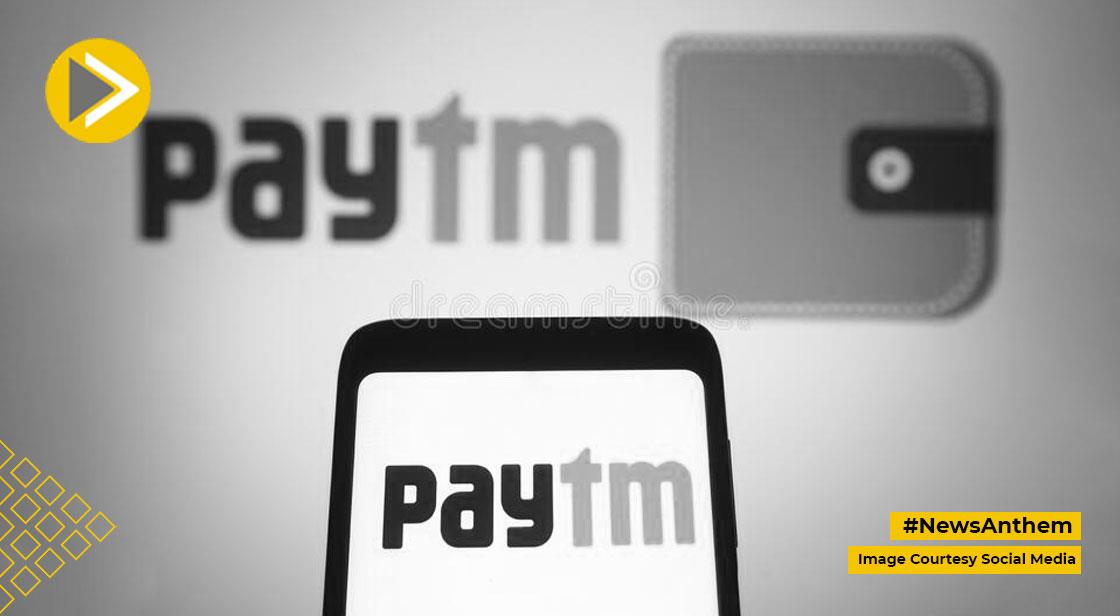RBI Asked Paytm To Reapply For A Payment Aggregator licence

News Synopsis
Latest update
In response to Paytm's initial application, the Reserve Bank of India (RBI) asked that Paytm submit a new application for a payment aggregator licence within 120 days. One97 Communications' subsidiary Paytm Payments Services Ltd (PPSL), which offers financial and digital payment services, is seeking the licence.
The central bank directed Paytm to “seek necessary approval for past downward investment from the company into PSL, to comply with FDI guidelines”. One97 Communications reported to stock exchanges. The RBI has also instructed the payments company to stop signing up new online merchants.
The company stated that as the letter from the RBI primarily applies to new online merchants, the development will not significantly affect sales or profits. Paytm reaffirmed its ability to continue bringing on new offline retailers and provide them with payment capabilities including All-in-One QR, Soundbox, and card readers among others. “Similarly, PPSL can continue to do business with existing online merchants for whom the services will remain unaffected. We are hopeful of receiving the necessary approvals in a timely manner after resubmitting the application,” One97 stated.
MobiKwik, a competitor, recently had its application for a payment aggregator licence rejected by the RBI; as a result, it reapplied.
According to One97, “The RBI has not rejected our application, but has simply asked us to reapply in 120 days,”
The RBI barred Paytm Payments Bank from adding new customers in March.
The Reserve Bank of India (RBI) had stated in a statement in March that “Onboarding of new customers by Paytm Payments Bank Ltd will be subject to specific permission to be granted by the Reserve Bank of India (RBI) after reviewing (the) report of the IT auditors,”
That ban is still in effect. When asked when it expects the banking authority to grant it permission to open new payments bank accounts, Paytm stated in its September quarterly earnings that it still does not have a precise timeframe.
Last updated -17 Nov 2022
According to reports SoftBank Group Corp. on Thursday sold a 4.5% stake in Indian digital payments giant Paytm through block deals for $200 million, which caused a dramatic decline in the value of the Indian-specific company.
According to two persons with firsthand understanding of the situation, the price of the sale, which fell inside the term sheet examined by Reuters' pricing range of 555 to 601.45, was 555.67 rupees.
calculations show that SoftBank received $200 million in total compensation for selling 29.35 million shares at that price.
The news of the transaction, which came a day after the lock-in period for investors in Paytm's November 2021 Initial Public Offering (IPO) closed, caused the company's shares to drop by more than 9%.
The second-largest shareholder of Paytm, whose shares have tumbled more than 60% since it went public a year ago, is SoftBank's Vision Fund. As of September 30, SoftBank owned a 17.5% stake in Paytm.
The sale is the most recent in a string of asset sales made by SoftBank in recent months after its flagship Vision Fund unit suffered losses of nearly $50 billion in only six months.
According to one of the individuals with direct knowledge of the situation, hedge funds including Norges Bank, Millennium Capital, Segantii Capital Management, and Ghisallo Capital Management are among the other buyers of the shares in addition to other buyers.
Because they were not authorized to discuss the topic publicly, the sources declined to be named.
Requests for comment from SoftBank, Paytm, Millennium, Segantii, Ghisallo, and Norges Bank went unanswered.
According to the term sheet, Bank of America was in charge of the transaction.
For a realized gain of $5.6 billion, Vision Fund sold a variety of companies in the April-June quarter, including the ride-hailing company Uber Technologies, the real estate platform Opendoor Technologies, and KE Holdings, which runs China's Beike.
You May Like









